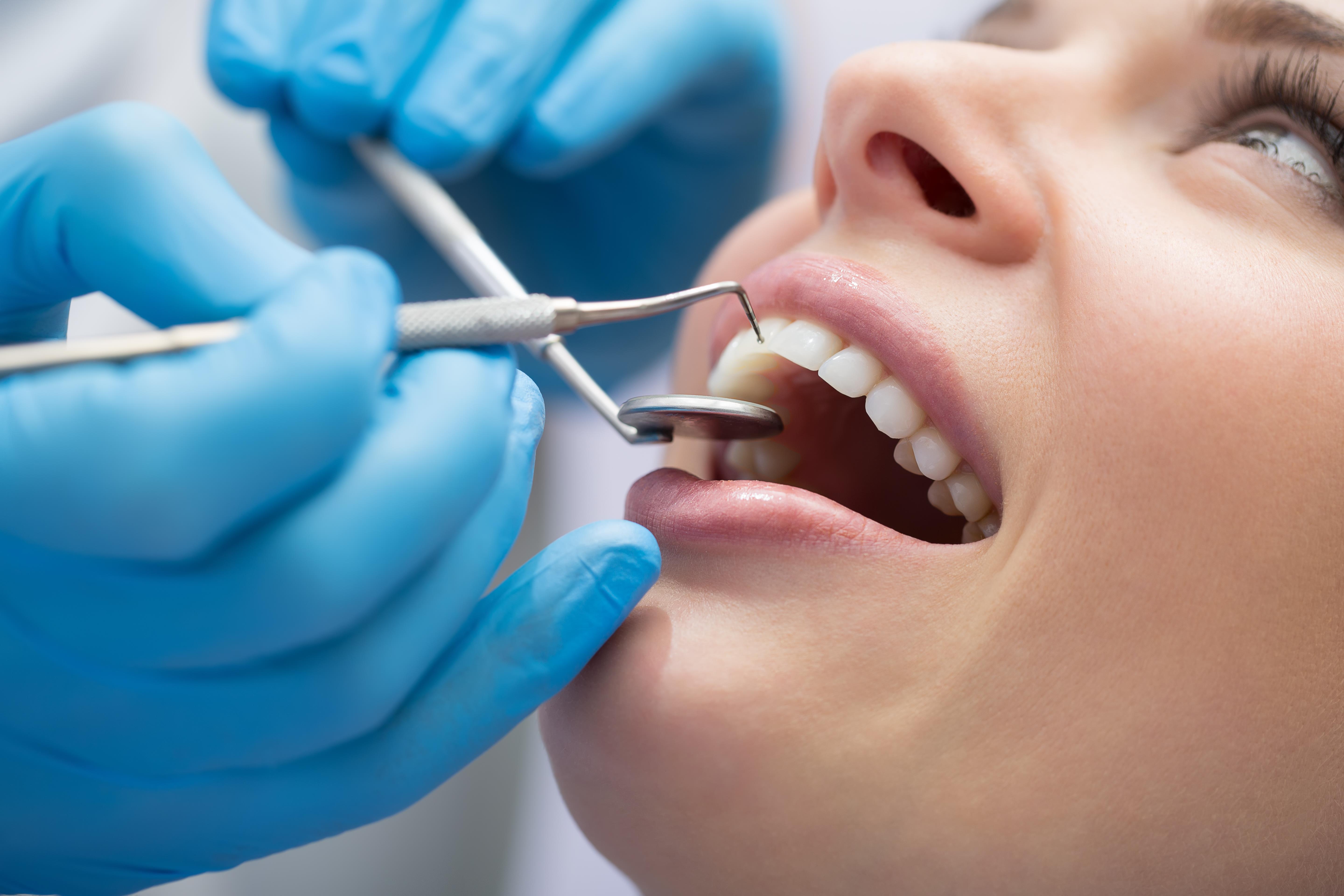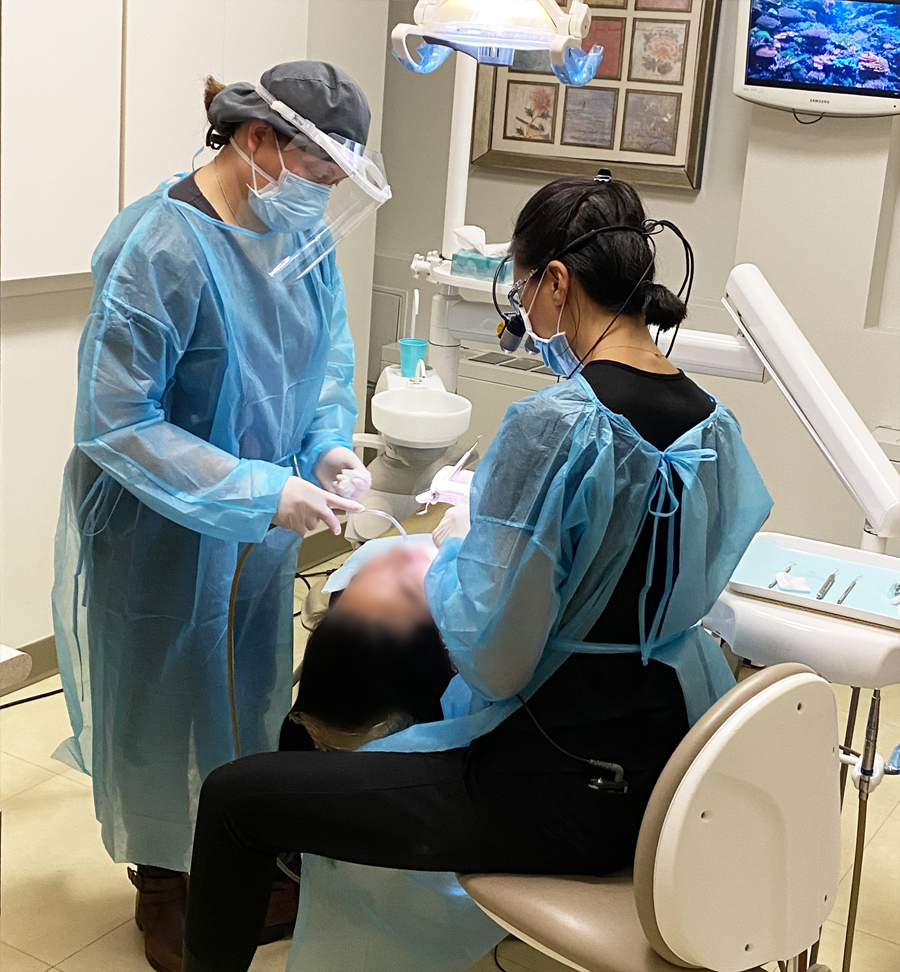A Guide to Common Oral Conditions That Need a Dental practitioner's Treatment
Understanding the variety of dental conditions that necessitate specialist care is paramount for preserving optimum oral health. Toothaches, for example, can be symptomatic of serious issues such as cavities, broken teeth, or abscesses, each requiring certain treatments like dental fillings or root canals. Gum tissue condition, from the early phases of gingivitis to much more extreme periodontitis, highlights the importance of normal dental exams and cleansings. Furthermore, impacted knowledge teeth and jaw disorders can introduce significant pain and problems. Making sure timely check outs to the dental professional can minimize these problems efficiently, but what precisely are the therapies and indicators entailed?
Toothaches
Toothaches are a typical oral condition that can vary from moderate discomfort to severe pain, often indicating a hidden issue that needs specialist focus. This discomfort can come from a variety of resources, consisting of oral cavities, fractured or fractured teeth, and dental abscesses. Each of these conditions presents substantial dangers if left untreated, potentially causing a lot more extreme problems.
Dental tooth cavities, likewise understood as cavities, are caused by the accumulation of plaque that deteriorates tooth enamel, leading to openings or pits in the affected teeth. Abscesses are uncomfortable infections at the origin of a tooth or in between the gum and a tooth, commonly resulting from serious degeneration or untreated dental caries.
Reliable therapy of toothaches involves resolving the origin. This might consist of fillings for dental caries, crowns for fractured teeth, or origin canals and antibiotics for abscesses. Very early treatment by a dental professional can prevent more damage and ease pain, ensuring ideal oral health.
Gum Tissue Condition

The main root cause of gum condition is microbial plaque, a sticky, colorless film that continuously develops on teeth. Poor dental health, smoking, genetic predisposition, and certain medical problems, such as diabetes, can intensify the danger of creating gum illness. Routine dental exams are essential for early detection and administration of this condition.
Treatment for gum tissue disease ranges from professional oral cleansing and scaling to more innovative treatments like root planing and periodontal surgery, depending upon the extent. Maintaining excellent dental health practices, consisting of brushing twice daily, flossing, and utilizing a disinfectant mouth wash, can considerably decrease the threat of gum tissue condition and advertise much healthier periodontals.
Cavities
Cavities, likewise referred to as oral caries, are an usual oral problem defined by the destruction of tooth enamel because of acid-producing bacteria in the mouth. These microorganisms flourish on sugars and starches from food and drinks, producing acids that progressively erode the enamel, leading to tooth cavity development.
Early-stage tooth cavities might disappoint signs and symptoms, but as they progress, they can create toothache, level of sensitivity to hot or cold, visible holes or pits in the teeth, and discoloration. If left without treatment, tooth cavities can penetrate much deeper layers of the tooth, potentially causing severe discomfort, infection, and even missing teeth.
Protecting against cavities involves a mix of great oral health practices and nutritional routines. Regular brushing with fluoride tooth paste, flossing, and routine dental check-ups are critical. Dental professionals may likewise suggest extra safety nets, such as fluoride treatments and dental sealants, to protect teeth from decay.
Therapy for tooth cavities depends on their severity. Small dental caries can be attended to with dental fillings, which bring back the tooth's framework. If the degeneration has gotten to the tooth's pulp, much more advanced instances might call for crowns or also root canal treatment. Prompt treatment by a dental practitioner is vital to prevent issues and keep overall oral health and wellness.
Impacted Knowledge Teeth
Influenced wisdom teeth are a widespread dental recommended you read issue that occurs when the third molars, typically described as knowledge teeth, fail to totally arise or straighten appropriately within the mouth. This condition typically arises from insufficient space in the jaw or an unusual development angle of the teeth. Impacted knowledge teeth can result in a selection of complications, including pain, infection, and damages to surrounding teeth.
When knowledge teeth end up being affected, they are commonly partly emerged or remain completely below the periodontal line. This partial eruption can produce a pathway for microorganisms to enter the gums, causing infections that show up as swelling, discomfort, and also fever (dentists eugene). In addition, affected wisdom teeth can put in pressure on bordering teeth, possibly triggering crowding or moving
A detailed oral exam, normally entailing X-rays, is important for identifying impacted knowledge teeth. Therapy usually entails medical removal, performed by an oral cosmetic surgeon. The treatment intends to minimize pain and prevent further directory issues, such as cysts or damages to surrounding bone structures. Post-operative care is critical to guarantee proper recovery and decrease the risk of infection. Regular dental exams are suggested to keep track of the problem and keep dental health and wellness.
Jaw Disorders
Final Thought

Dental tooth cavities, likewise recognized as decays, are caused by the build-up of plaque that deteriorates tooth enamel, leading to holes or pits in the influenced teeth. Abscesses are excruciating infections at the root of a tooth or between a tooth and the periodontal, usually resulting from severe decay or without treatment dental caries.
Influenced knowledge teeth are a prevalent dental concern that occurs when the 3rd molars, typically referred to as wisdom teeth, fail to fully emerge or align correctly within the mouth. Influenced wisdom teeth can lead to a variety of problems, including infection, damage, and discomfort to adjacent teeth.
Furthermore, impacted knowledge teeth can put in stress on neighboring teeth, potentially triggering crowding or changing.